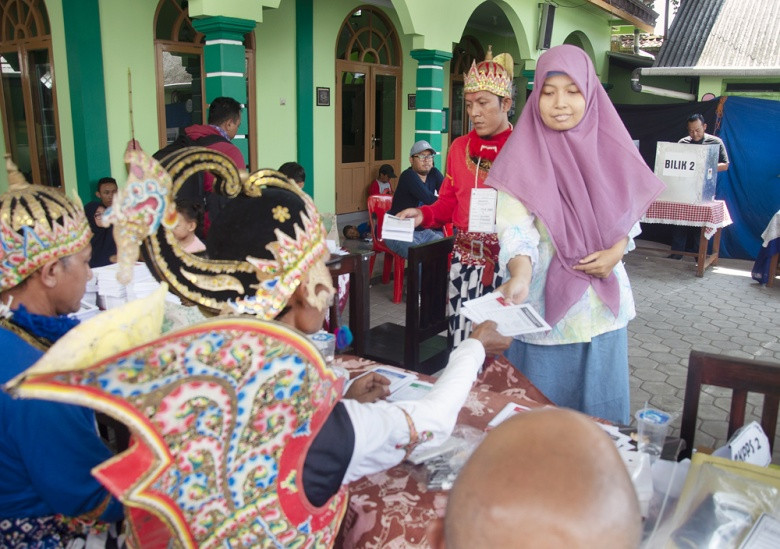Popular Reads
Top Results
Can't find what you're looking for?
View all search resultsPopular Reads
Top Results
Can't find what you're looking for?
View all search resultsElect to postpone
From a health perspective, December is not the right time to hold simultaneous regional elections.
Change text size
Gift Premium Articles
to Anyone
E
arlier this month, with little fanfare, President Joko “Jokowi” Widodo signed Regulation in lieu of Law (Perppu) No. 2/2020. The measure reschedules simultaneous regional elections in 270 regions from Sept. 23 to December of this year because of the COVID-19 pandemic.
The Perppu opens up the possibility of further delays if the health crisis persists. With the pandemic showing no sign of abating, the government, the House of Representatives and the General Elections Commission (KPU) should postpone the political contests until next year for the good of the nation.
Scientists doubt that Indonesia has managed to bring the outbreak under control or that it has flattened the curve, regardless of the government’s preparation for a “new normal”. The available COVID-19 data remains unreliable as Indonesia has performed only about 264,000 polymerase chain reaction (PCR) and swab tests nationwide. This amounts to 946 tests per 1 million people, one of the lowest rates in Southeast Asia.
Amid poor public compliance with health protocols, as evinced by crowded markets, airports and gatherings which ignore physical distancing, the country is at high risk of seeing a spike in virus transmission, if not a full second wave of the outbreak.
Even if the pandemic ends in June, it will take a few more months before life returns to normal or before we can fully adapt to what the “new normal” entails. But expecting the world to beat COVID-19 anytime soon is a distant hope.
From a health perspective, December is not the right time to hold simultaneous regional elections. The elections and the events that accompany them may exacerbate contagion, partially because preparations must start next month at the latest. The preparatory stage includes the selection of poll committee members and the verification of the voter list. These both involve face-to-face interactions.
The KPU may draft health protocols to keep both poll organizers and voters safe from infection during the preparatory stage, but concerns about health and safety may still prevent voters from exercising their right. Potentially depressed turnouts in local elections would raise questions about the legitimacy of elected leaders.
Regional elections in December do not bode well for democracy as they may further politicize social protection programs for those affected by the pandemic. Incumbent regional heads will take full advantage of the programs to woo voters as in the recent case in Klaten regency, Central Java. The elections do not provide a level playing field for the challengers of incumbents.
The KPU has, in fact, offered three dates for the regional elections. If December 2020 is not feasible, election day can be postponed to March 2021 or September 2021.
While waiting until next year to hold local elections is not ideal, it makes better sense than jeopardizing the public’s health and safety – or needlessly depressing voter turnout – by pressing on with elections in the shadow of a pandemic.
The later date will also give the KPU and its regional arms more time to prepare for an event that will define the future and well-being of people in 270 provinces, regencies and municipalities throughout the country.










